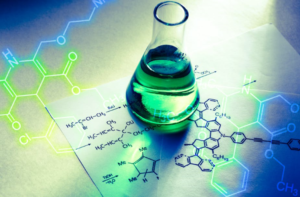New Enzyme – PET46 for Plastic Degradation
2 min readDr. Anand R
Senior Scientific Officer, KSTA
Every year nearly 400 million tons (MT) of plastic waste is being generated worldwide. India generates around 3.4 MT of plastic waste annually. While, Karnataka generates around 0.296 MT every year. Major contribution of plastic to our State comes from Bengaluru which generates around 600 tons of plastic waste every day and that amounts to 0.22 MT per year.
The plastic pollution is increasingly affecting us with severe health, environmental, social and economic consequences. We have been successful in handling only 10% of the plastic waste generated through the 3Rs – Reduce, Reuse, Recycle approach. Hence, governments, researchers, industry and other stakeholders are exploring other methods for solving plastic problem.
A research group under the guidance of Professor Ruth Schmitz-Streit at German’s Christian-Albrechts Kiel University has shown, for the first time, that microorganisms from the deep sea have the potential to degrade polymers such as Polyethylene terephthalate (PET) commonly called as PET. The research group have highlighted the special feature of the PET degrading enzyme in their recently published paper in the Communication Chemistry journal. The research group have discovered a new genetic resource from deep-sea belonging to the archaea and described this PET degradation enzyme as PET46.
Although, 80 different PET degrading enzymes were known, most of which were found in bacteria or fungi. However, the present research contributes to a better understanding of the ecological role of deep-sea archaea and the possible degradation of PET waste in sea.
The PET46 has many unusual properties and structurally, the enzyme differs significantly from those previously discovered. It has the ability to degrade both very long-chain PET molecules, known as polymers and short-chain PET molecules, known as oligomers, which means that degradation can be continuous.
Among other things, PET46 uses a completely different mechanism for substrate binding. An unusual ‘lid’ of 45 amino acids above the enzyme’s active center are crucial for binding. The biochemical properties of PET 46 make it a very interesting enzyme both for marine and terrestrial plastics degradation. The PET46 is found to be more efficient at 70°C when compare to other enzymes
Reference: Pablo Perez-Garcia et al, An archaeal lid-containing feruloyl esterase degrades polyethylene terephthalate, Communications Chemistry (2023). DOI: 10.1038/s42004-023-00998-z Journal information: Communications Chemistry






